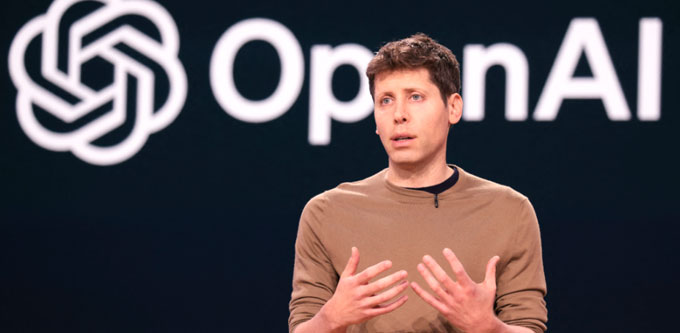OpenAI continues to dominate the artificial intelligence (AI) landscape, significantly outpacing competitors like Google and Meta in the generative AI tools market, as new data suggests a widening gap in user adoption, product maturity, and ecosystem influence.
OpenAI Extends Market Lead Amidst Growing Developer Adoption
According to recent traffic analytics from Similarweb and industry assessments from PYMNTS, OpenAI has seen a marked surge in usage of its flagship tools—ChatGPT and GPT-4/4o—over the past quarter. Monthly visits to OpenAI’s platform have exceeded 2.2 billion, reinforcing its position as the go-to destination for enterprise and consumer-level AI solutions.
This spike aligns with the rollout of GPT-4o (Omni), a multimodal upgrade offering superior context handling, voice interaction, and visual reasoning—capabilities that rivals like Google DeepMind’s Gemini 1.5 Pro and Anthropic’s Claude 3 are still trying to match in terms of both capability and accessibility.
Google Trails Despite Gemini Push
Despite aggressive marketing and the integration of Gemini into Google Workspace, Gmail, and Search, Alphabet’s AI unit has yet to bridge the usability gap. Gemini’s web interface has been criticized for inconsistent performance and lower adoption outside developer circles.
While Google Gemini 1.5 Pro shows promising performance in benchmarks, including long-context processing, its fragmented rollout and lack of real-time interaction features have made it less attractive to mainstream users compared to ChatGPT Plus.
Meta’s AI Ambitions Hampered by Delays in ‘Behemoth’ Rollout
Meanwhile, Meta is encountering internal friction over the delayed release of its largest large language model, LLaMA 4 “Behemoth”, which was initially slated for mid-2024. According to reports from The Wall Street Journal, the model’s development has stagnated due to performance shortcomings, despite its ambitious architecture boasting 2 trillion parameters.
Meta’s smaller models—Maverick (400B parameters) and Scout (109B parameters)—released during the inaugural LlamaCon 2024, have gained traction in open-source circles. However, they remain difficult to deploy without extensive AI infrastructure, limiting their enterprise utility compared to OpenAI’s managed offerings.
AI Scaling Laws Face Physical Limits
The slowdown across the industry isn’t limited to Meta. The AI sector as a whole appears to be grappling with the limits of current scaling laws—the principle that larger models trained on more data yield better performance. Industry voices, including AI pioneer Andrew Ng, have noted that gains from brute-force scaling are diminishing.
Furthermore, access to high-quality training data is tightening. As AI companies exhaust publicly available data, the fight over copyright has intensified. OpenAI, Google, and Microsoft are actively lobbying the U.S. government to preserve the right to train on copyrighted materials, citing the threat of losing competitive edge to Chinese firms like Baidu and Alibaba, which benefit from state-backed access to domestic data pools.
Enterprise AI Adoption Trends Favor OpenAI
Enterprise clients are increasingly opting for OpenAI’s APIs through Microsoft Azure, which provides integration with Microsoft 365 products. Meanwhile, Amazon has bet on Anthropic’s Claude models for AWS Bedrock, while Meta’s absence from enterprise-grade cloud services continues to be a strategic disadvantage.
Even developers in academia and startups who prefer open-source solutions often require the plug-and-play simplicity that OpenAI offers. As noted by AI21 Labs and Cohere, the real bottleneck is not just access to models, but ease of deployment and inference efficiency at scale.
The Road Ahead: What to Watch
- OpenAI’s GPT-5: Expected to debut in late 2025, GPT-5 is rumored to feature even longer context windows and enhanced reasoning capabilities, potentially incorporating synthetic data training from digital agents.
- Google’s Gemini Evolution: With Gemini 2.0 in development, Google is pushing for tighter integration with Android and Pixel devices.
- Meta’s AI Reshuffle: Internal tensions may lead to leadership changes in Meta’s AI product team, as the company reassesses its LLM deployment strategy beyond social media tools.
















Leave a comment